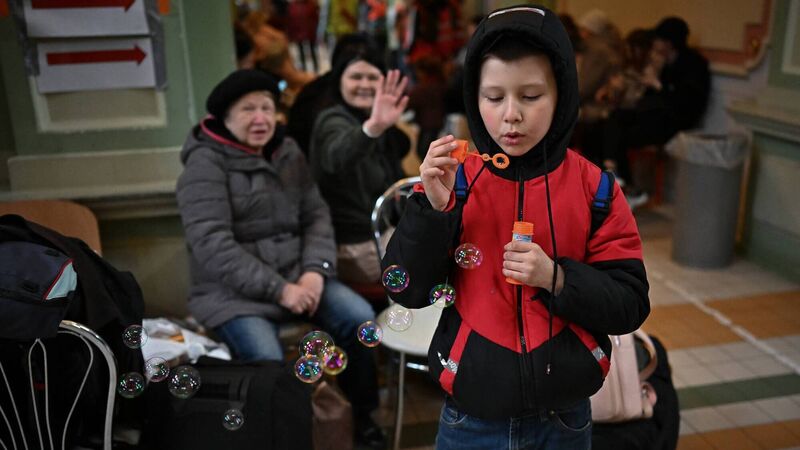Brought together by war but with little else to bind them: The realities of life in accommodation centres

A boy at Przemysl railway station in Poland after travelling from war-torn Ukraine on March 31, 2022. Ireland has sourced accommodation for almost 60,000 people fleeing the war in Ukraine in the past year. Picture: Jeff J Mitchell/Getty Images
As the world’s eyes were on Qatar for the World Cup final, groups of people across various communities and social divides were brought together by a common love of football.
Just like the tensions between the supporters of Argentina and France, there were also divisions between those who were interested and those who were not.














